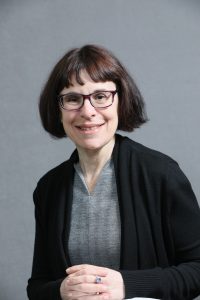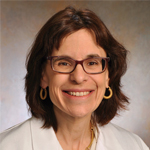Ethical issues in medicine are not just important to physicians. They’re often at the forefront of news coverage of health issues, making ethics a critical touchstone for the public perception of healthcare. Karen Onel, MD, the new chair of the ACR’s Committee on Ethics & Conflict of Interest, is chief of the Division of Pediatric Rheumatology, Hospital for Special Surgery (HSS), and a professor of clinical pediatrics, Weill Cornell Medicine, New York. She recently spoke with The Rheumatologist to provide some insights on her background and interest in the topic of ethics.

Dr. Karen Onel
The Rheumatologist (TR): Why were you interested in becoming chair of the Committee on Ethics & Conflict of Interest?
Dr. Onel: As a pediatric rheumatologist who is active in research, I’ve always been fascinated by issues related to ethics and, in particular, the ethics of proxy consent, such as when a parent agrees to have [their] child in a study. I have served on institutional review boards (IRBs) for most of my career and was vice chair of the IRB at the University of Chicago. Over time, in addition to my interest in medical ethics, my interest in the effects of conflicts of interest has grown—along with the rest of the world’s interest, it seems: It is so common now to hear conflicts of interest discussed on the news and [see the issues] on the front page of the paper. I was fortunate to serve on the committee as a member. These issues and how they affect the ACR and our patients were unfolding right before my eyes. I am so lucky to now have the role of chair.
TR: What are the biggest ethics-related challenges right now for rheumatologists and the ACR?
Dr. Onel: We need to think about conflicts—not just real conflicts, but apparent conflicts—in order to retain the public trust. Without that trust, the doctor-patient relationship can be damaged and interfere with best practices.
TR: Could you share something else to help readers get to know you a little?
Dr. Onel: I always wanted to be a general pediatrician. I did an elective at HSS while training in pediatrics, and I was hooked. There is so much to learn and such promise for improved care. The changes over the past two decades have been extraordinary, and I have gotten to be a part of these changes.
I also love being with my family. Now that our two girls are in college, I suspect that my husband (a pediatric cancer geneticist) and I will spend hours talking science, watching baseball games and traveling.


